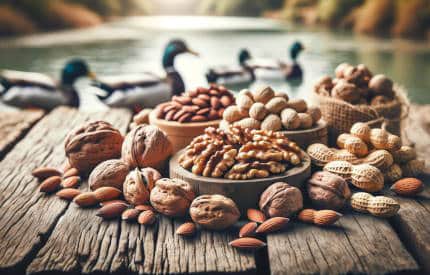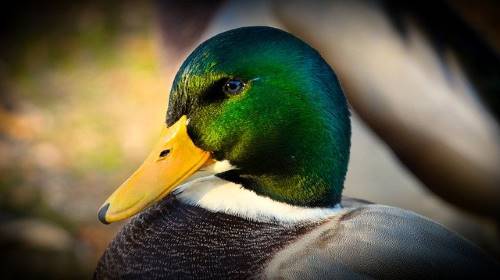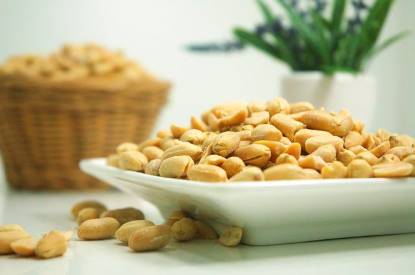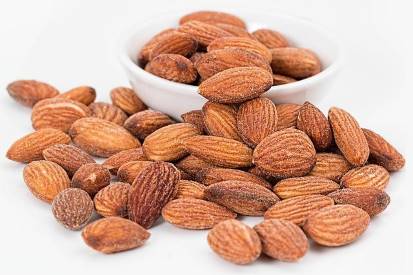As a dedicated duck keeper, I’ve often pondered whether my web-footed charges can safely indulge in the same crunchy treats I enjoy. Can ducks eat nuts? The short answer is yes, but it’s a bit more complex than simply tossing a handful of peanuts into the pond. Nuts can be incorporated into a duck’s diet, but it’s crucial to understand the hows and whys to ensure their health and happiness.
Navigating the do’s and don’ts of duck diets can be as tricky as herding ducklings. With my flock’s well-being at the forefront, I’ve learned that while nuts contain beneficial nutrients, they also pose risks that require careful consideration. So, let’s dive into the specifics of sharing these savory morsels with our feathered friends, ensuring they live their best duck lives.

Duck Dietary Basics and Nutritional Needs
Ducks are quite the opportunistic feeders, and they’ve got a knack for chomping down on a wide variety of grub. From skimming the pond for algae to nibbling on seeds, these feathered friends aren’t picky. But when it comes to their health, they need a balanced diet just like we do. Let’s waddle through the essentials of what ducks dig in their diet, focusing on the good stuff that keeps their feathers glossy and their quacks happy.
Natural Food Sources and Common Safe Human Foods for Ducks
In the wild, ducks have an array of options, scooping up everything from aquatic plants to tiny fish. But when they waddle into our yards, they often find a different menu. It’s cool to share some of our snacks with them, as long as they’re duck-friendly. Think grains, veggies, and occasionally, nuts.
Macronutrients and Micronutrients Necessary for Ducks
Just like a bodybuilder needs their protein, ducks need their macronutrients to keep their energy up. Carbs give them energy to flap and swim, proteins help them grow, and fats keep them insulated. But it’s not just about the big guys; micronutrients play a starring role too, keeping their bodies ticking over and avoiding any ruffled feathers.
[DuckAffiliate]
Understanding Ducks’ Foraging Behavior and Nut Encounters
Have you ever watched a duck in action? They’re like little detectives, foraging with finesse. But what happens when their beady eyes spot some nuts? Understanding how ducks search out their snacks can give us a peek into whether nuts are a hit or a miss on the duck diner menu.
How Ducks Forage in the Wild
Out in the wild, ducks aren’t just floating about; they’re on a mission. With a keen eye for edibles, they dabble and dive, turning over leaves and sifting through mud to find those tasty morsels Mother Nature has to offer.
The Impact of Human Feeding on Foraging
When humans come into the picture with our breadcrumbs and snacks, we can throw a wrench in the works. Ducks might get lazy or too used to the easy life, which can mess with their natural foraging instincts. It’s like fast food for birds – convenient but not exactly what the doctor ordered.
Types of Nuts Ducks Might Encounter During Foraging
Now, about nuts. Ducks might stumble upon some fallen acorns or the odd walnut. While these aren’t typical duck dishes, they’re not necessarily off the menu. But before we go nuts over nuts, let’s crack into whether they’re actually suitable for our quacky companions.
Potential Benefits of Nuts in a Duck’s Diet

Nuts might not be the first thing you think of when feeding ducks, but they’re not just for squirrels. Packed with energy and nutrients, some nuts could be a little luxury for our feathered friends. But don’t go nuts just yet – let’s peck at the potential perks.
Nutritional Content of Nuts and Their Value for Ducks
Nuts are little powerhouses loaded with proteins, healthy fats, and vitamins. For a duck, that could mean a boost in energy and some extra shine for their feathers. But it’s not a free-for-all; some nuts are better than others, and moderation is key.
Appropriateness of Different Nuts for Ducks
While ducks might not turn their beaks up at a cashew or two, some nuts are better left out of their bowls – the size, shape, and fat content matter. Smaller, softer nuts can be a treat, but larger, harder ones might be trouble. It’s a bit of a nutty nuance.
Risks Associated with Feeding Nuts to Ducks

But let’s not fly ahead of ourselves. Nuts can be tricky, and there are some risks we’ve got to consider. From choking hazards to nutritional no-nos, let’s talk about the flip side of feeding these crunchy snacks to ducks.
Choking Hazards and Digestive Concerns
Ducks don’t have teeth, so they’re not cracking nuts like we do. Big nuts can be a choking hazard, and even if they manage to swallow them, it doesn’t mean their bellies will be happy. Plus, nuts can be tough on their digestion – no one wants a duck with a tummy ache.
Unhealthy Fats and Excess Calories in Nuts
Nuts are calorie-dense, and while a bit of fat won’t hurt, we don’t want our ducks getting pudgy. Excess weight can make it tough for them to dodge predators or fly. It’s all about balance – a nut here and there, not a whole bag.
Safe Ways to Feed Nuts to Ducks

If you’re keen on treating your local ducks to some nutty delights, let’s do it the right way. With a sprinkle of caution and a dash of preparation, we can make nuts a safe snack option for our feathered pals.
Proper Nut Sizes and Preparation Methods
Think small, think soft. That’s the motto for duck-friendly nuts. Crush them up, or go for the naturally small ones. And keep it unsalted – ducks don’t need the extra sodium.
Recommended Frequency and Quantity of Nuts
This isn’t a nut buffet; it’s more like a nut garnish. A little here and there is fine, but nuts shouldn’t replace the main staples of a duck’s diet. They’re more like the occasional treat, not the main course.
What other nuts and legumes can ducks eat?

Navigating through the varied diet of ducks, we often encounter questions about other types of nuts and legumes beyond the typical nut variety. It’s essential to recognize which of these can be beneficial and which could potentially cause our feathered friends more harm than good.
Peanuts
Peanuts, often a favorite among birds, can be offered to ducks, but with a few caveats. They are technically legumes and not true nuts, but that doesn’t make them any less tasty to a duck. However, peanuts should always be unsalted, unflavored, and ideally, out of the shell to prevent choking hazards.
It’s also worth noting that peanuts should be fed in moderation due to their high fat content, which can lead to obesity in ducks if overconsumed.
Read More: Can Ducks Eat Peanuts? Safe Snacking Tips
Almonds
Almonds might be a nutritious snack for humans, but for ducks, they’re a bit of a tough nut to crack — literally. These nuts are quite hard and can pose a risk of choking or digestive obstruction. If you decide to treat your ducks to almonds, ensure they are crushed or chopped into fine pieces.
Also, almonds should be unsweetened and unsalted to avoid any health issues.
Read More: Can Ducks Eat Almonds? Benefits Of Feeding This Nutritious Snack
Beans
Beans are another legume that ducks might encounter, and they can be a healthy addition to their diet — if they’re prepared correctly. Raw beans contain lectins, which can be toxic to birds, so it’s crucial only to offer cooked beans to your ducks.
Once cooked, beans can be an excellent protein source, especially during the colder months when insects, a natural protein source for ducks, are scarce. Just like with nuts, beans should be given in moderation as part of a balanced diet.
Read More: Can Ducks Eat Beans? Dive Into Healthy Treat Tips
FAQs on Feeding Ducks

Have you got questions? You’re not alone. When it comes to ducks and their diets, curiosity is common. Let’s dive into some of the most frequently asked questions about feeding ducks.
Can Ducks Eat Peanut Butter?
Peanut butter is a bit sticky and tricky for ducks. It’s not the best idea, as it can be challenging for them to swallow and digest. It is best to stick to plain nuts in moderation.
Do Ducks Like Almonds and Walnuts?
They might like them, but that doesn’t mean they should have them. Almonds and walnuts are on the larger and harder side, so if you’re going to share, make sure they’re crushed into small, manageable pieces.
Is It Safe to Feed Ducks Salted Nuts?
Salty snacks are a no-go for ducks. Their little bodies aren’t built to handle much salt, and too much can lead to dehydration or other health issues. So, keep those nuts unsalted to make sure our duck buddies stay healthy.
How Often Can Ducks Have Nuts as a Treat?
Nuts can be an occasional treat, but how often is occasional? Think of it like dessert for us – not every meal or even every day. A few times a week, in small quantities, is a good rule of wing to follow. This helps ensure that nuts remain a special snack, not a dietary staple.
Can ducks eat nuts – final thoughts
In the quacking world of duck care, we’ve cracked the case on whether ducks can eat nuts. It’s clear that while these crunchy bites can be a source of nutrition, they come with a caution sign. Proper size, preparation, and moderation are the trifecta for introducing nuts into a duck’s diet. Just like we savor a fine chocolate truffle sparingly, ducks should enjoy nuts as an occasional luxury, not a dietary mainstay.
So, fellow duck keepers, let’s keep our nutty adventures safe and sound for our feathered friends. By offering the right types of nuts in duck-friendly portions, we ensure our ponds are filled with healthy quacks and flappy wings.
